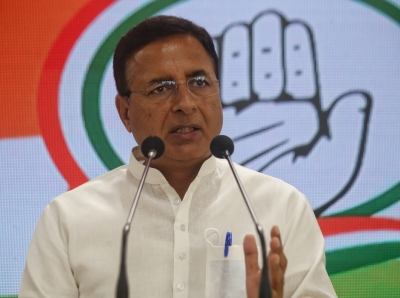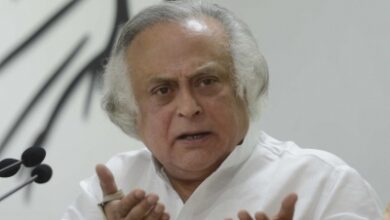
New Delhi, Aug 11 : The Central government has introduced a Bill in the Rajya Sabha to regulate the appointment, conditions of service and term of office of the Chief Election Commissioner and other Election Commissioners.
The Bill proposes that the Chief Election Commissioner (CEC) and other Election Commissioners (ECs) will be appointed by the President on the recommendation of a panel comprising the Prime Minister, Leader of Opposition (LoP) in the Lok Sabha and a Union Cabinet Minister nominated by the Prime Minister.
The opposition believes that if this bill becomes a law, it will affect the autonomy of the Election Commission.
Congress General Secretary and Rajya Sabha MP Randeep Singh Surjewala said in an interview to IANS that it is very important for democracy to remain neutral of the Election Commission.
According to Surjewala, if the bill becomes a law, the Election Commission will be transformed into a government election commission instead of being independent. Excepts:
IANS: What is your stand regarding the bill?
Surjewala: It was a black day in Parliament in the history of democracy. Election Commission is the last independent body to conduct free and democratic elections in India. Prime Minister Narendra Modi wants to make it the Modi Election Commission.
A constitution bench of the Supreme Court has clearly said that if the Election Commission is not fair, then democracy cannot survive in the country. Therefore, a three-person panel was formed to appoint the Chief Election Commissioner, consisting of the Chief Justice, Prime Minister and the Leader of the Opposition, so that a balance is maintained.
IANS: What is your objection to the bill? What provisions are you opposing?
Surjewala: We have three direct objections.
The first objection is that through this law, the government is hatching a heinous conspiracy to nullify the decision of the five-member constitutional bench of the Supreme Court.
The second objection is that after the enactment of this law, the Election Commission will not be able to remain impartial, because now the Chief Election Commissioner will be appointed by the Prime Minister, one of his ministers and the Leader of the Opposition. That is, two people will be from the government and one will be from the opposition and with a full majority they will be able to make the Chief Election Commissioner and Election Commissioner whom they want.
The third objection is that there is segregation of power in the Constitution of India i.e. The Judiciary and Executive cannot snatch each other’s power but now an attempt is being made to destroy the balance that was created by the Supreme Court bench through this law.
IANS: What will be the impact on the Election Commission if the bill becomes a law?
Surjewala: It will end the autonomy and independence of the Election Commission. And the Election Commission will become a puppet of the government. Favourite people of the government will be appointed in the Election Commission. This bill and law is totally illegal and it was introduced in the Rajya Sabha in an illegal manner so that the voice of the opposition and the country could not be heard.
IANS: What is the objection to the panel headed by the Prime Minister proposed in the bill.
Surjewala: With this the government will have its own Chief Election Commissioner, Election Commissioner, election commission, and results. No need of democracy, no need of the Supreme Court, no need of Parliament. This is a law to hold democracy hostage because when there will be no autonomy of the Election Commission, then how will democracy survive?






